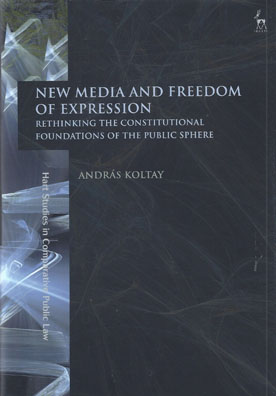
How are the principles of freedom of expression, developed over the centuries, preserved and passed on? How can large internet intermediaries be required to respect freedom of expression and to contribute actively to a diverse and plural market of opinions? These are key issues for media regulation – and will be so in the following decades as far as it is foreseeable.
The book starts with the definition and summary of freedom of expression and freedom of the press and then goes on to elaborate on the general questions of the internet as a specific medium. It then turns to analysing the legal issues arising in the course of operation of the three most important intermediaries (ISPs, search engines and social media) that affect freedom of expression. Finally it summarises the potential future regulatory and media policy directions.
The book takes a comparative legal approach, focusing primarily on English and American regulations, case law and jurisprudential debates, but it also details the relevant international (Council of Europe, European Union) developments, as well as the jurisprudence of the European Court of Human Rights.